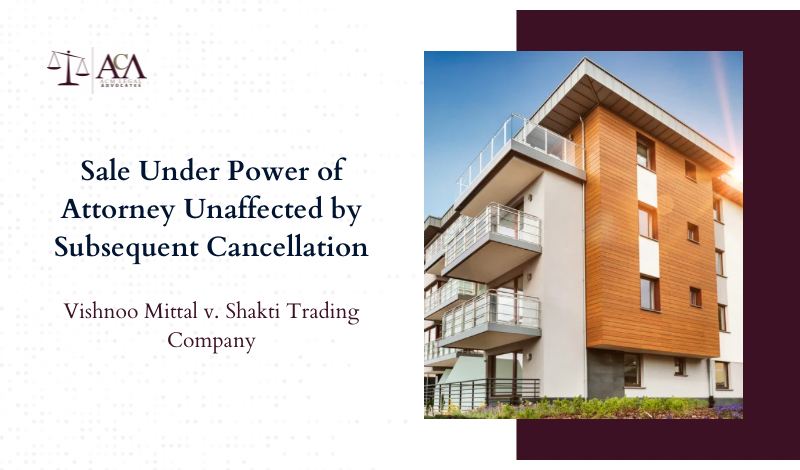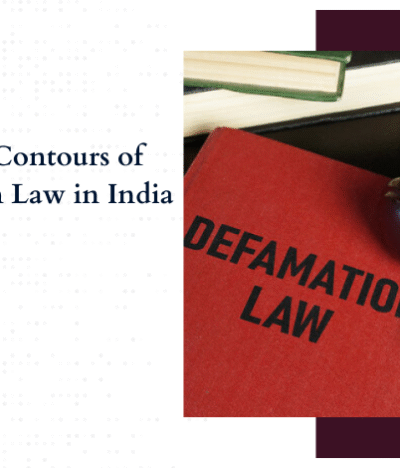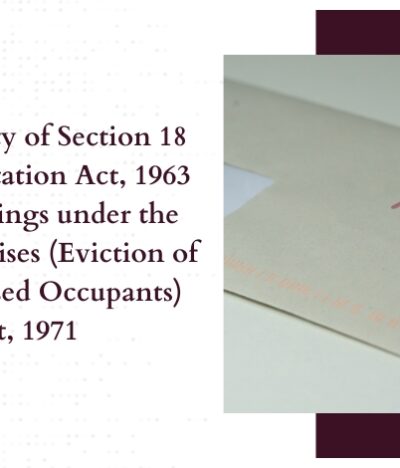In the matter of Vishnoo Mittal v. Shakti Trading Company, the Hon’ble Delhi High Court adjudicated the validity of a sale transaction conducted under a Power of Attorney (PoA) and the legal effect of its subsequent cancellation. The case, decided on March 17, 2025, was heard by a bench comprising Justice A.K. Malhotra, Justice R.P. Sinha, and Justice Devendra Prasad.
The primary issue before the Court was whether a sale executed under a duly authorized Power of Attorney remains valid if the PoA is later revoked by the principal, and whether such a revocation has retrospective effect on transactions already completed under its authority.
The case involved appellant Vishnoo Mittal and respondent Shakti Trading Company, wherein the appellant challenged the validity of a sale deed executed by an attorney holder on his behalf. The appellant contended that the Power of Attorney was revoked on August 12, 2023, thereby invalidating the transaction. The respondent, however, asserted that the sale was lawfully executed on July 5, 2023, when the Power of Attorney was in force, and its subsequent revocation did not impact the legality of the transaction.
The Court, after analyzing the submissions, statutory provisions, and judicial precedents, rendered its decision reinforcing the principle that a validly executed sale under a Power of Attorney cannot be retrospectively invalidated by its subsequent cancellation.
Facts of the Case
The dispute arose from a sale transaction executed under a Power of Attorney (PoA). The appellant, Vishnoo Mittal, had executed a registered Power of Attorney on March 15, 2022, in favour of his agent, Ramesh Choudhary, authorizing him to manage, sell, and transfer an immovable property located at Plot No. 47, Sector 18, Gurugram, Haryana, measuring 350 square yards. Acting under this authority, the agent executed a sale deed on July 5, 2023, in favour of the respondent, Shakti Trading Company, for consideration of ₹2.75 crores.
Subsequently, the appellant revoked the Power of Attorney on August 12, 2023, alleging that the agent had acted beyond his authority and had failed to ensure proper consideration. The appellant contended that the revocation should render the sale deed null and void, arguing that the agent had no authority to execute the transaction in the manner he did. Further, the appellant claimed that since the Power of Attorney stood revoked, the transaction should be treated as legally non-existent.
On the other hand, the respondent, Shakti Trading Company, contended that the sale deed was executed lawfully when the Power of Attorney was still valid and subsisting. It was argued that once an attorney holder lawfully exercises the powers conferred under a valid PoA, the principal cannot later invalidate or nullify the transaction by unilateral revocation. The respondent further asserted that it had taken possession of the property immediately after the execution of the sale deed and had already initiated development work, making any subsequent challenge to the sale untenable.
The matter was brought before the Hon’ble Delhi High Court, where the primary legal issues for determination were:
1. Whether a sale deed executed under a duly authorized Power of Attorney remain valid despite subsequent cancellation of the PoA?
2. Whether the revocation of a Power of Attorney has a retrospective effect on transactions lawfully conducted under it?
3. Whether the respondent’s rights as a bona fide purchaser were legally protected in the absence of any prior notice of revocation?
The Court carefully examined the submissions of both parties, the governing legal principles, and the relevant statutory provisions before rendering its findings.
Court’s Observations and Legal Analysis
The Hon’ble Delhi High Court, after examining the facts and submissions, emphasized the established legal principle that a validly executed sale under a Power of Attorney cannot be retrospectively invalidated by its subsequent revocation. The Court referred to Section 202 of the Indian Contract Act, 1872, which provides that an agency coupled with interest cannot be revoked unilaterally by the principal if the agent has acted in good faith and for valid consideration.
The Court made the following key observations:
1. Validity of the Sale Transaction: The Court held that the sale deed dated July 5, 2023, was executed when the Power of Attorney was still valid and subsisting. Since the authority had not been revoked at the time of execution, the sale cannot be questioned retrospectively.
2. Effect of Revocation: The Court categorically stated that revocation of the Power of Attorney on August 12, 2023, had no retrospective effect. The Court relied on the Supreme Court’s judgment in Suraj Lamp & Industries Pvt. Ltd. v. State of Haryana (2012) 1 SCC 656, wherein it was held that a bona fide purchaser who has acted on the basis of an existing Power of Attorney cannot be prejudiced by its subsequent revocation.
3. Bona Fide Purchaser Protection: The Court further ruled that Shakti Trading Company was a bona fide purchaser for value without notice of any revocation or dispute, thereby entitled to full protection under the law. The respondent had taken physical possession of the property immediately after execution of the sale deed and had commenced development work, which further reinforced its legal claim.
4. Estoppel Against the Principal: The Court also invoked the doctrine of estoppel under Section 115 of the Indian Evidence Act, 1872, stating that Vishnoo Mittal, having knowingly granted authority to his agent and having allowed the transaction to be executed, cannot now turn back and claim its invalidity to his own advantage.
5. Judicial Precedents: The Court cited multiple precedents, including:
- K.K. Verma v. Union of India (1954) AIR SC 1092 [1], which upheld the principle that acts done in good faith under a valid Power of Attorney cannot be retrospectively invalidated.
- Rajesh Kumar v. State of Haryana (2019) 5 SCC 458 [2], wherein it was held that revocation of a Power of Attorney does not affect transactions lawfully executed prior to such revocation.
The Court concluded that the appellant’s claim was legally untenable and devoid of merit, as the sale transaction was validly executed under a subsisting authority and could not be challenged retrospectively.
Judgment and Final Order
Based on the legal principles, statutory provisions, and judicial precedents examined, the Hon’ble Delhi High Court rendered the following judgment:
1. The sale deed dated July 5, 2023, executed in favor of Shakti Trading Company is legally valid and binding. The transaction was conducted under a duly authorized and subsisting Power of Attorney, and its subsequent revocation on August 12, 2023, does not affect the validity of the sale.
2. The revocation of the Power of Attorney does not have retrospective effect. The Court reiterated that once a valid transaction has been executed, a principal cannot nullify it by unilateral revocation of the Power of Attorney.
3. Shakti Trading Company is a bona fide purchaser for value and is therefore entitled to retain ownership and possession of the property. The Court observed that the respondent had already taken possession and initiated development work, further strengthening its claim.
4. The appellant, Vishnoo Mittal, is estopped from challenging the sale deed. Citing Section 115 of the Indian Evidence Act, 1872, the Court held that since the appellant had willingly executed the Power of Attorney and allowed the agent to act on his behalf, he could not later retract his position to invalidate the sale.
5. Costs and Dismissal of the Appeal: The Court found the appeal devoid of merit and dismissed it with costs. The appellant was directed to pay ₹1 lakh as litigation costs to the respondent within four weeks from the date of the judgment.
Conclusion
The ruling in Vishnoo Mittal v. Shakti Trading Company reinforces the well-settled legal position that transactions lawfully executed under a Power of Attorney remain valid and unaffected by its subsequent revocation. The decision upholds the sanctity of commercial transactions, protects bona fide purchasers, and prevents principals from abusing the revocation mechanism to invalidate completed transactions to their advantage.
With this ruling, the Delhi High Court has once again affirmed that a legally executed sale under a valid Power of Attorney cannot be nullified by a mere revocation, providing clarity and legal certainty in property transactions.
[1]https://indiankanoon.org/doc/184871093/
[2]https://indiankanoon.org/doc/1167814/






